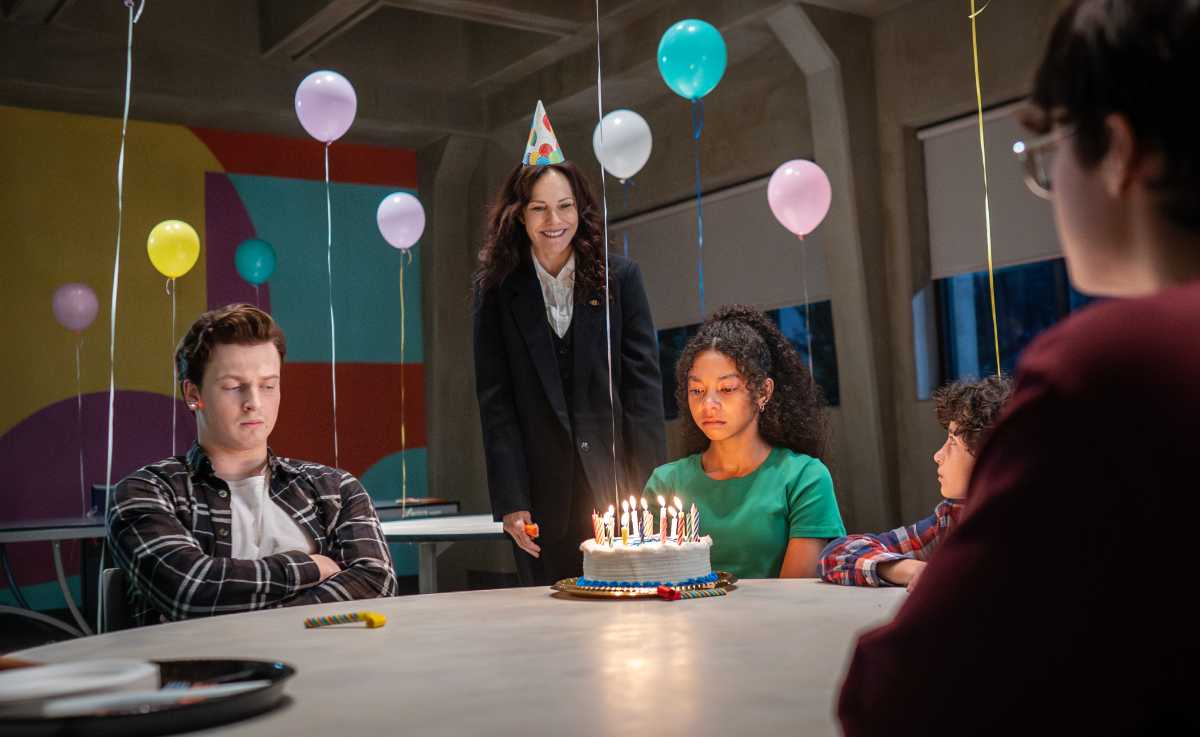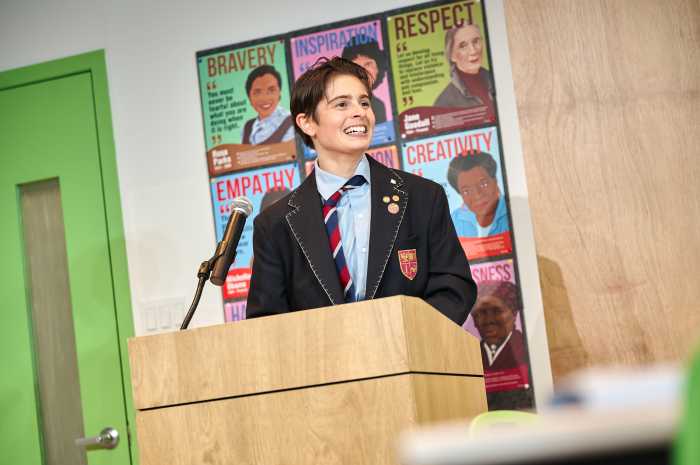Errol Morris won an Academy Award for his documentary “The Fog of War,” in which former Secretary of Defense Robert McNamara discusses his deep regrets over Vietnam.
In “The Unknown Known,” opening Friday, Morris turns his Interrotron camera onto another controversial former Defense Secretary, who helped sell another deeply controversial war, but the result couldn’t be more different.
The poster for Morris’ latest doc features a grinning Donald Rumsfeld with the tagline “Why is this man smiling?” and he finds a subject who is at peace and free of regrets when it comes to his controversial tenure under President George W. Bush.
amNewYork spoke with Morris about the film, which traces Rumsfeld life and career in large part through his reading of some of the many memos he issued while in public office, which the filmmaker sums up as “an excursion into a really empty landscape.”
Do you have any sense as to what Rumsfeld was thinking when he agreed to do this?
I don’t know if he was thinking. To me, he was utterly confident, convinced of the correctness of his own position, unremorseful, unapologetic. This was an opportunity I believe for him to forcefully explain his own position, which he believes in.
What’s the function of Rumsfeld’s verbosity, his propensity for borderline-nonsensical concepts like “unknown knowns”?
I would say he actually believes that he’s saying something. He seems delighted by the fact that he can parse language in this way and make these distinctions. He seems to actually think he’s saying something, even when he is not, when he is avoiding saying something, or deflecting possible criticism.
To what extent does that come from his background as a politician?
Of course there’s a political element in all of it because the memos, they’re written from the Ford administration on, actually even before, as a political operative, as a person who is trying to position his views in one way or another, who was also trying to leave a record of what he thought or what he wanted people to think he thought during the course of his career.
What do you make of his notion of “known knowns” and “unknown knowns”?
The real issue for all of us, the advancement of knowledge, is not between the known and the unknown. It’s between what we think we believe and knowledge. How we justify the beliefs that we have. How we justify them as knowledge rather than mere beliefs. And instead of engaging in that, he engaged in an excursion into looney tunes. And many people bought it. Let’s make no mistake.
Rumsfeld raises the fear of a “failure of imagination,” like the one he says failed to prevent Pearl Harbor, as being a driving force for him in office. Is there any validity to the notion?
There’s a place for imagination in everything. But it’s the imagination to make various conjectures based on available evidence and then test them against available evidence. ? This didn’t have that mechanism. All this had was conjecture. Just imagine stuff, if you will, and then act on it.
How do you determine when to push a subject versus letting him self-incriminate?
There’s a fine line in how to do this. There’s probably as many different ways to interview someone as there are interviewers and subjects. No correct, no incorrect way of doing it. I have a predisposition to one way rather than another. I don’t see myself as doing adversarial interviews, even though this is perhaps the most adversarial interview I’ve ever done. I saw this project as an attempt to create history from the inside out. To use his memos, to use his oral history that I obtained in interviews to create a portrait, at least a picture, of what’s going on inside his head.
Do you think you captured that?
I think it’s there in some very powerful sense. It’s a frightening picture. It’s a picture of obfuscation, evasion, confusion, self-satisfaction, vanity. It’s the flipside of McNamara, almost as if he just turned it 180 degrees. One man thoughtful, agonized by his past, trying to really understand why he did what he did. And make no mistake, even though these men are as different as they could possibly be, they were involved in two disastrous wars. Two incredibly disastrous and I would add unnecessary wars that cost the lives of, Vietnam, millions of people, 60,000 American servicemen, millions of people across Southeast Asia. And what did Rumsfeld learn from this, when I ask him? What did he learn? Some things work out. Some things don’t. That’s it. That’s the level of reflection and insight.
What does Rumsfeld think of the movie?
He saw versions of the film as the film was put together, many versions. Complained about some things, liked other things. And he liked the final version of the film. Not without qualifications, but he liked it. And I can actually see that. He may have liked less what I have said about the film in the aftermath of making it.





























